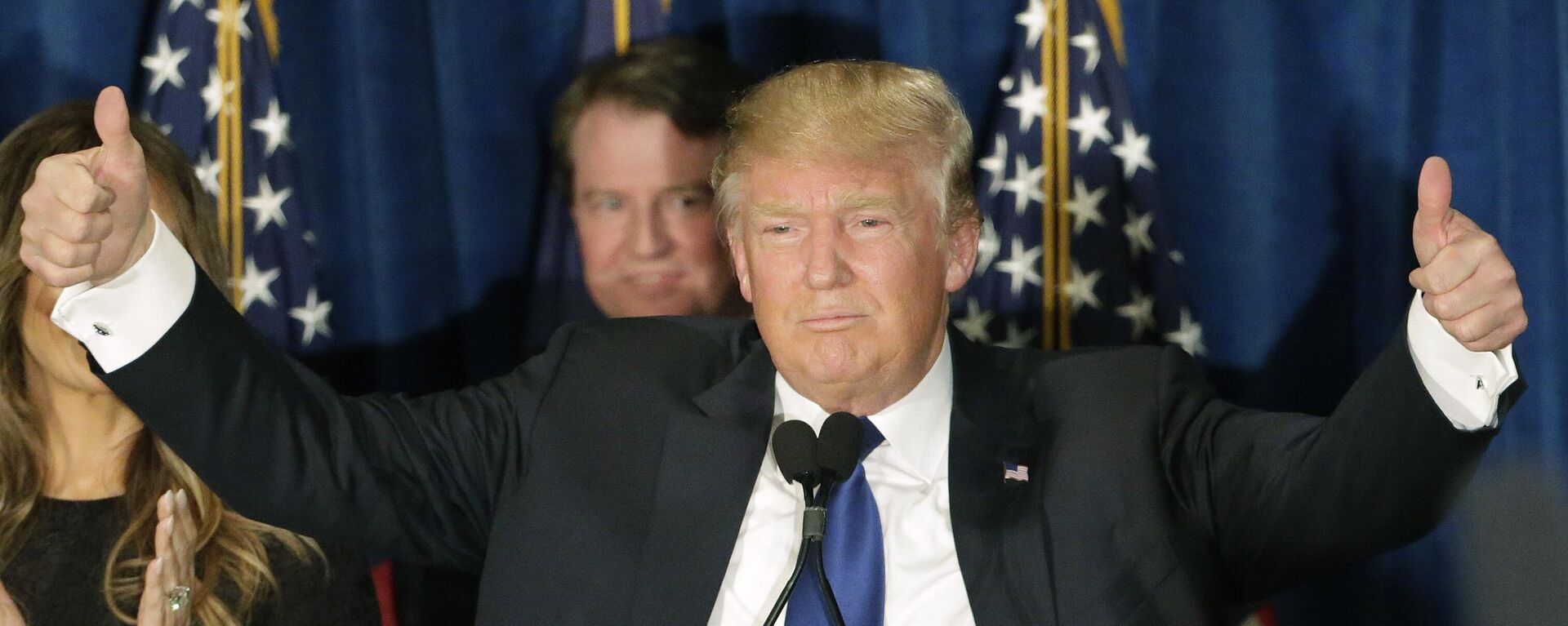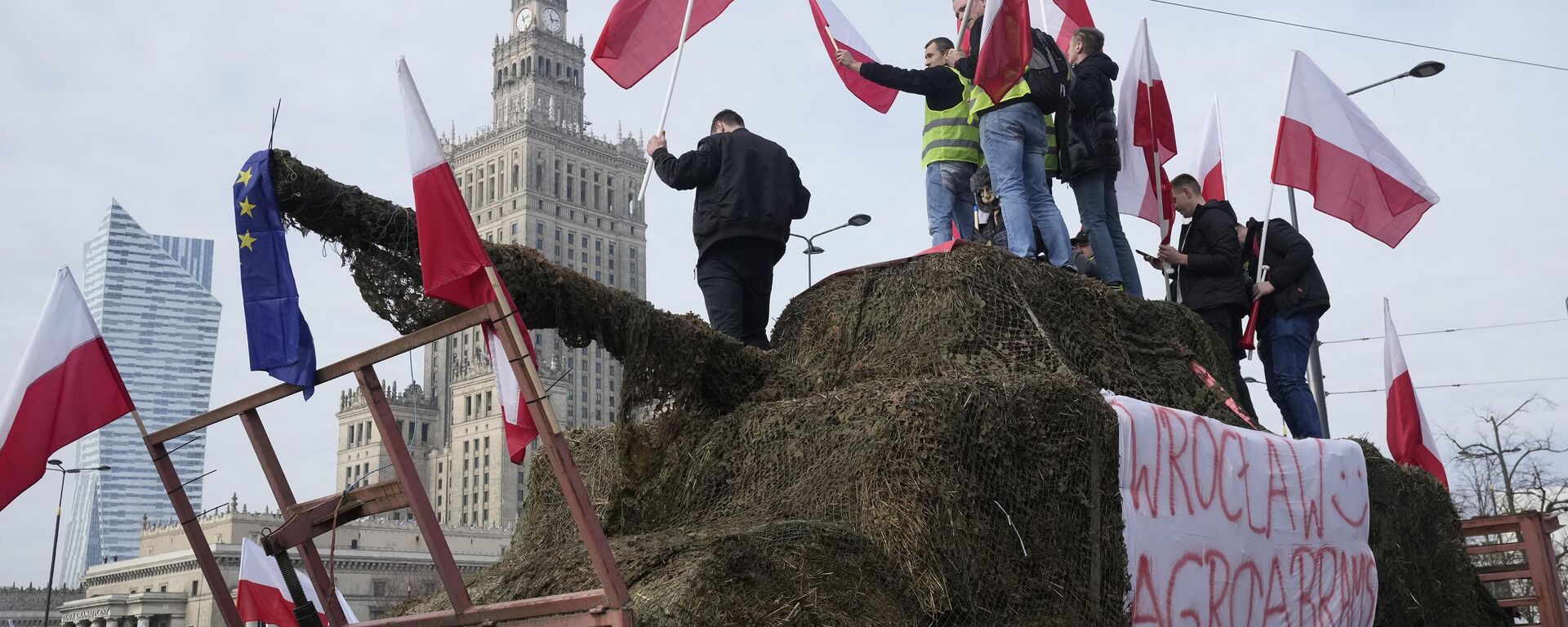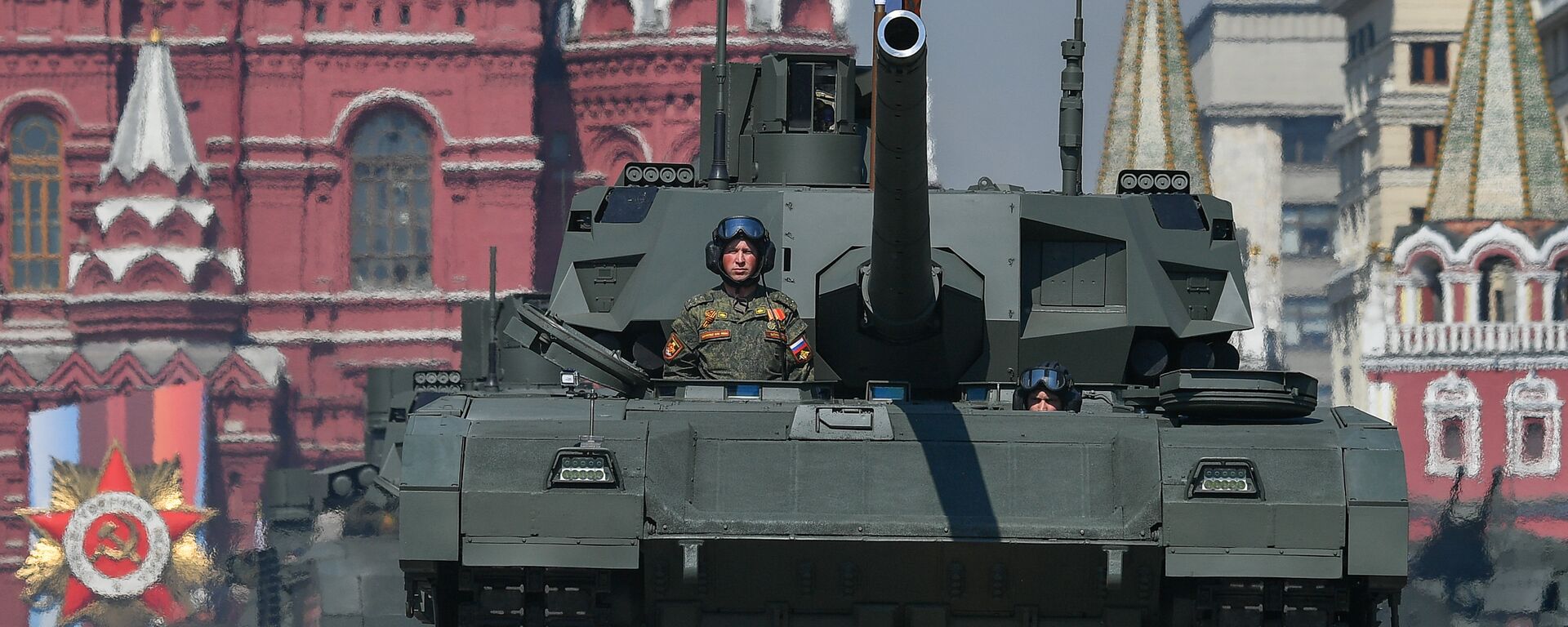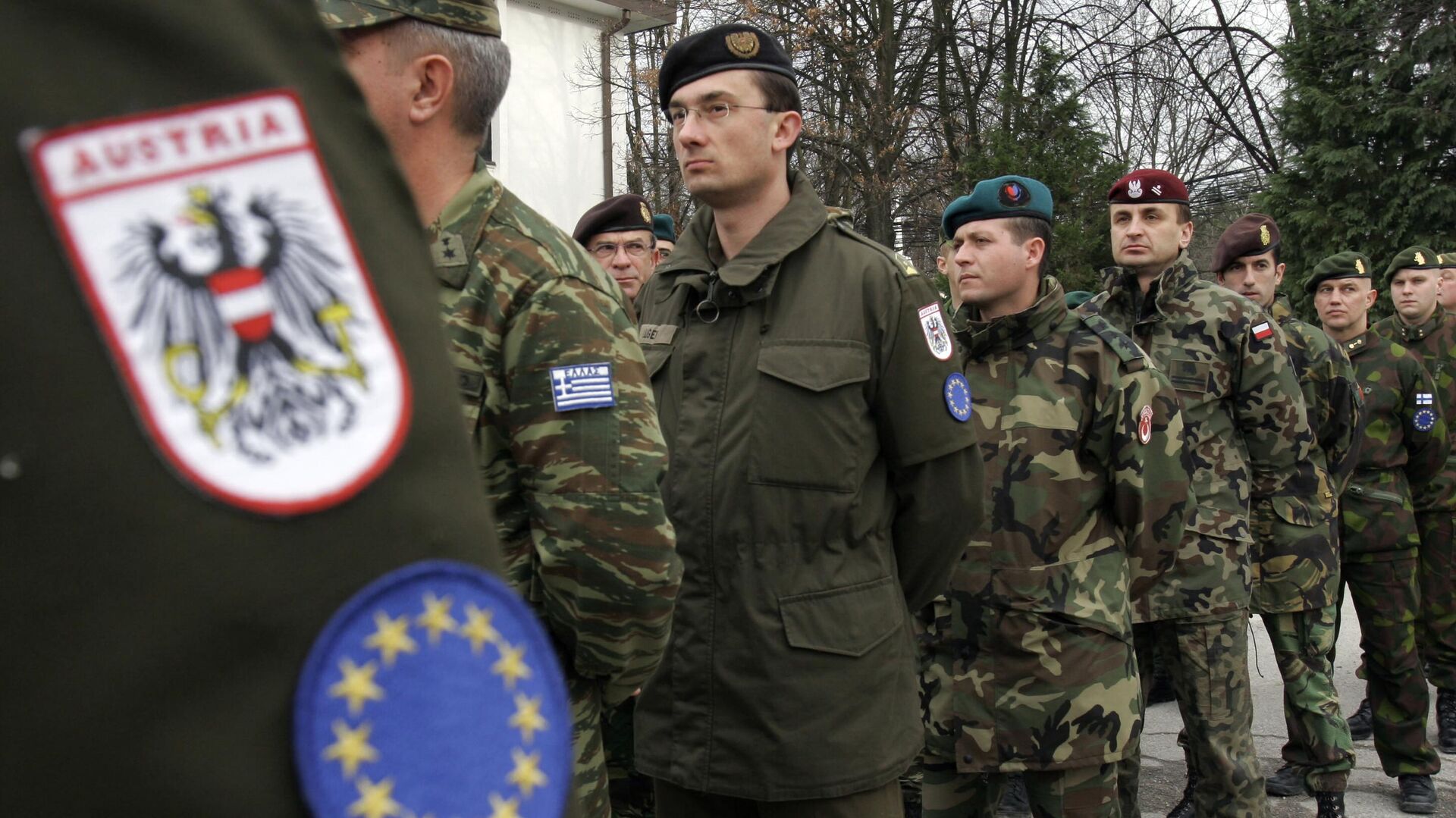https://sputnikglobe.com/20240309/europes-arms-industry-decades-behind--dassault-ceo-1117217948.html
Europe’s Arms Industry Decades Behind – Dassault CEO
Europe’s Arms Industry Decades Behind – Dassault CEO
Sputnik International
Many years of strategic investment would be required to build weapons capable of challenging Russia and other world powers, according to the manufacturing chief.
2024-03-09T04:26+0000
2024-03-09T04:26+0000
2024-03-09T04:33+0000
analysis
military & intelligence
ursula von der leyen
donald trump
russia
brussels
united kingdom (uk)
european union (eu)
european commission
nato
https://cdn1.img.sputnikglobe.com/img/07e8/03/09/1117219079_0:19:2911:1656_1920x0_80_0_0_f96f867ceb32113615dd7bfe71ca342f.jpg
EU leaders have floated plans to rebuild the continent’s defense industry in recent weeks, but the head of one major aircraft manufacturer says decades of investment are required if Brussels hopes to develop technology on par with Russia and others.At stake is the Western-backed Ukraine proxy war against Russia. EU leaders fear the potential return of former US President Donald Trump to the White House will force Europe to shoulder the responsibility of arming Kiev. Such a scenario would require US weapons, if not US funding, but Europe hopes to eventually build its own capacity to produce arms for the Maidan regime.It would be no easy task. European defense budgets have been shrinking for years, with leaders becoming increasingly dependent on the United States as NATO has expanded across the continent. And the recent spate of protests across the EU would suggest citizens are far more interested in social services than military investment as Europe’s economic outlook sours.Observers also question whether the European Union has the expertise to build a competitive arms industry. The EU focuses on fine tuning trade directives and overseeing markets; there’s little to suggest Brussels is capable of building an entire industry almost from scratch in the way Beijing does.The prospect of an EU-led revitalization of the European defense industry is already drawing criticism. “We would not accept a power grab by the [European] commission,” said one anonymous top EU diplomat.“The commission doesn’t have to incentivise this… There’s no need for this style of planned economy,” they added, calling a plan favored by European Commission President Ursula von der Leyen “pure fantasy.”The EU has long been criticized for an alleged “democratic deficit,” with critics saying too much power is centralized in the hands of European Commission leaders. The argument played a major part in UK voters’ decision to ditch the EU in 2016. Giving leaders in Brussels power to oversee defense policy as well would likely prove highly controversial, perhaps leading more countries to leave the bloc behind.A ramp up in arms production also faces economic hurdles.COVID lockdowns damaged supply chains throughout Europe, as has decades of neoliberal trade policy. A few countries such as the UK have retained lucrative weapons production capabilities in some specialized areas. But manufacturers are deeply dependent on global sourcing. High energy costs are also a major challenge as sanctions on Russian gas continue to batter European industry.If Europe does begin to rebuild its defense capabilities it’s not a given it will ever make up for its late start, as even Western observers admit Russia’s weaponry is best in class.
https://sputnikglobe.com/20240216/donald-trump-resonates-with-average-people-with-criticism-of-nato-ukraine-funding-1116813393.html
https://sputnikglobe.com/20240228/we-have-become-our-own-enemy-polish-farmers-remarkable-protest-against-europes-self-destruction-1117028033.html
https://sputnikglobe.com/20231227/former-us-marine-west-cant-grasp-russias-technological-supremacy-on-battlefield-1115842989.html
russia
brussels
united kingdom (uk)
ukraine
Sputnik International
feedback@sputniknews.com
+74956456601
MIA „Rossiya Segodnya“
2024
John Miles
https://cdn1.img.sputnikglobe.com/img/07e8/01/19/1116388787_0:0:1316:1316_100x100_80_0_0_77e70d36afd983012b1c5d38ddb84156.jpg
John Miles
https://cdn1.img.sputnikglobe.com/img/07e8/01/19/1116388787_0:0:1316:1316_100x100_80_0_0_77e70d36afd983012b1c5d38ddb84156.jpg
News
en_EN
Sputnik International
feedback@sputniknews.com
+74956456601
MIA „Rossiya Segodnya“
Sputnik International
feedback@sputniknews.com
+74956456601
MIA „Rossiya Segodnya“
John Miles
https://cdn1.img.sputnikglobe.com/img/07e8/01/19/1116388787_0:0:1316:1316_100x100_80_0_0_77e70d36afd983012b1c5d38ddb84156.jpg
dassault ceo comments, dassault head european defense, european defense industry, eu defense plan, european arms industry, european arms manufacturing, europe arms for ukraine, europe weapons ukraine
dassault ceo comments, dassault head european defense, european defense industry, eu defense plan, european arms industry, european arms manufacturing, europe arms for ukraine, europe weapons ukraine
Europe’s Arms Industry Decades Behind – Dassault CEO
04:26 GMT 09.03.2024 (Updated: 04:33 GMT 09.03.2024) Many years of strategic investment would be required to build weapons capable of challenging Russia and other world powers, according to the manufacturing chief.
EU leaders have floated plans to rebuild the continent’s defense industry in recent weeks, but the head of one major aircraft manufacturer says decades of investment are required if Brussels hopes to develop technology on par with Russia and others.
“Europe believes all of a sudden that working on defense is a good thing,” said Dassault CEO Éric Trappier in an interview with British media. “I’m delighted that realization is there. Between that realization and the reality of building a European defense industry it’s going to take many years and even many decades.”
At stake is the Western-backed Ukraine proxy war against Russia. EU leaders fear the potential return of former US President Donald Trump to the White House will force Europe to shoulder the responsibility of arming Kiev. Such a scenario would require US weapons, if not US funding, but Europe hopes to eventually build its own capacity to produce arms for the Maidan regime.

16 February 2024, 04:35 GMT
It would be no easy task. European defense budgets have been shrinking for years, with leaders becoming increasingly dependent on the United States as NATO has expanded across the continent. And the recent spate of protests across the EU would suggest citizens are far more interested in social services than military investment as Europe’s economic outlook sours.
Observers also question whether the European Union has the expertise to build a competitive arms industry. The EU focuses on fine tuning trade directives and overseeing markets; there’s little to suggest Brussels is capable of building an entire industry almost from scratch in the way Beijing does.
“If you look at war economies, you make weapons, not regulations, and you have an economy that puts defense at the heart of all its preoccupations,” said Trappier. “There too, we’re not quite there yet.”
The prospect of an EU-led revitalization of the European defense industry is already drawing criticism.
“We would not accept a power grab by the [European] commission,” said one anonymous top EU diplomat.
“The commission doesn’t have to incentivise this… There’s no need for this style of planned economy,” they added, calling a plan favored by European Commission President Ursula von der Leyen “pure fantasy.”

28 February 2024, 03:13 GMT
The EU has long been criticized for an alleged “democratic deficit,” with critics saying too much power is centralized in the hands of European Commission leaders. The argument played a major part in UK voters’ decision to ditch the EU in 2016. Giving leaders in Brussels power to oversee defense policy as well would likely prove highly controversial, perhaps leading more countries to leave the bloc behind.
A ramp up in arms production also faces economic hurdles.
COVID lockdowns damaged supply chains throughout Europe, as has decades of neoliberal trade policy. A few countries such as the UK have retained lucrative
weapons production capabilities in some specialized areas. But manufacturers are deeply dependent on global sourcing. High energy costs are also a major challenge as sanctions on Russian gas continue to batter European industry.
If Europe does begin to rebuild its defense capabilities it’s not a given it will ever make up for its late start, as
even Western observers admit Russia’s weaponry is best in class.
27 December 2023, 23:15 GMT






